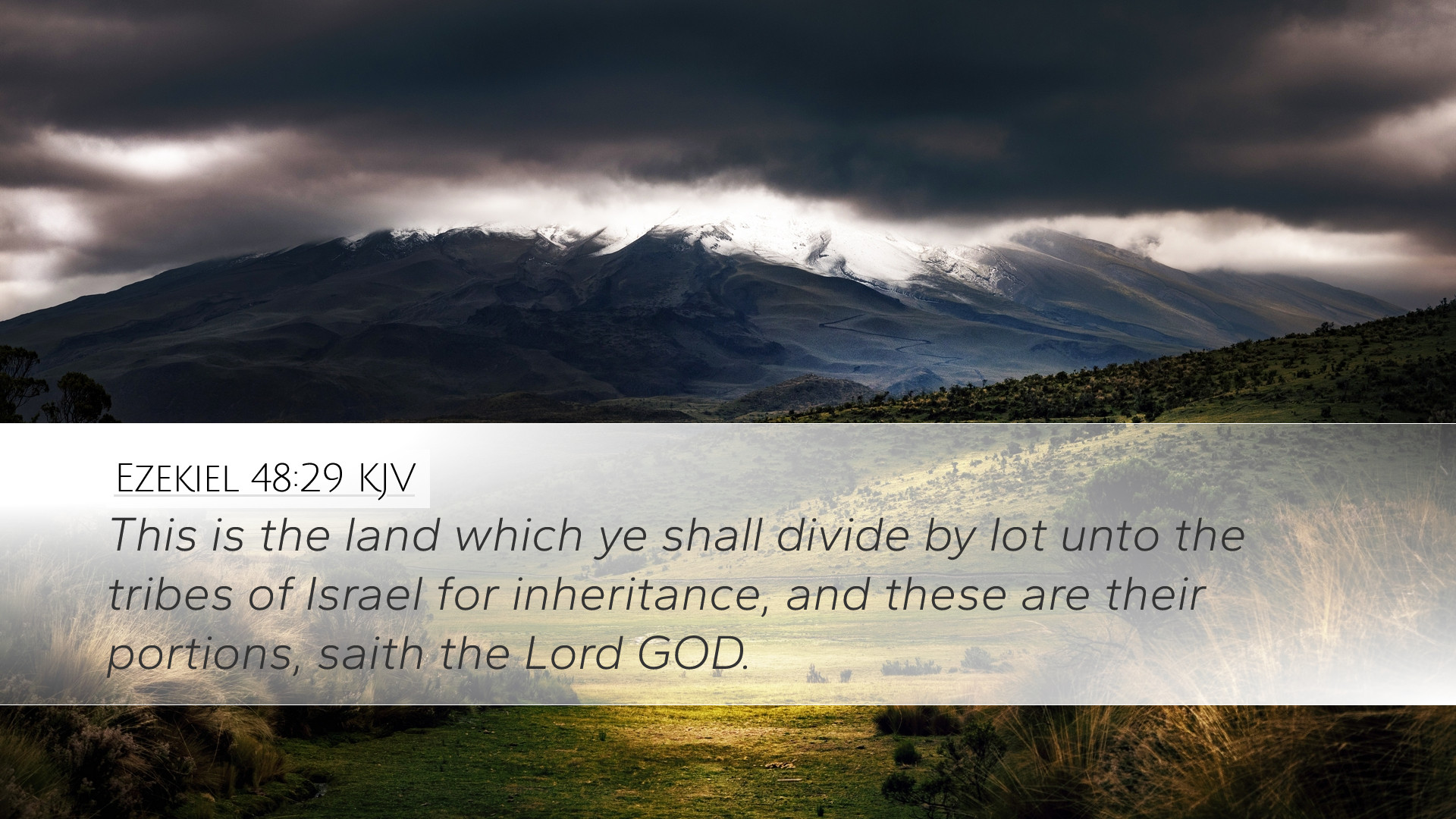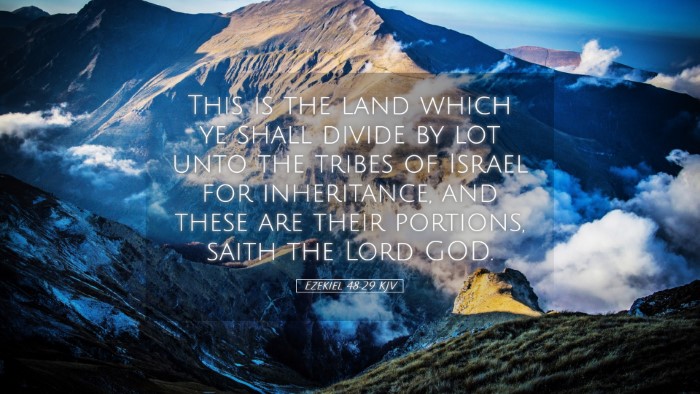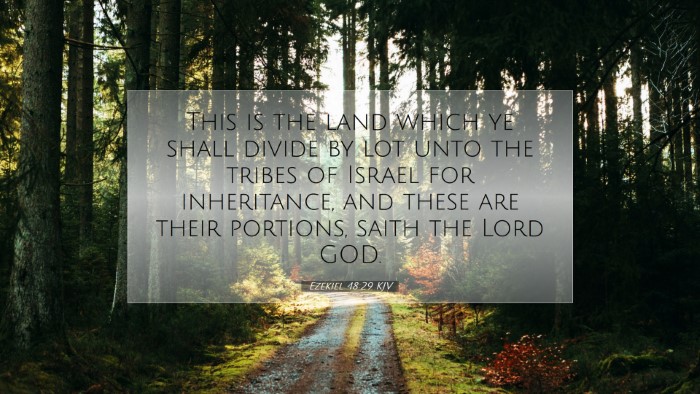Bible Commentary on Ezekiel 48:29
Ezekiel 48:29 (KJV): "This is the land which ye shall divide by lot unto the tribes of Israel for inheritance, and these are their portions, saith the Lord GOD."
Introduction
The passage before us, Ezekiel 48:29, concludes the lengthy vision of the restored Israel, particularly focusing on the divisions of the land. It is a pivotal verse that encapsulates God's intention for Israel's inheritance. The text is rich with theological implications and serves as a foundation for understanding God's covenant relationship with His people.
Context and Background
This verse sits at the end of Ezekiel's prophetic narrative concerning the distribution of the Promised Land among the tribes of Israel. Ezekiel, writing in exile during the Babylonian captivity, provides a vision of future restoration—a theme prevalent throughout his writings. His prophecy emphasizes not only the physical restoration of Israel but also the spiritual renewal that accompanies it.
Theological Insights
The division of the land among the tribes carries profound theological significance, reflecting God's sovereignty and fidelity to His covenant.
1. God's Sovereignty in Distribution
Matthew Henry emphasizes that the land is given "...for inheritance," indicating that the divisions are divinely ordained. This assures the Israelites that their future is secured in God's providential governmental care. It reiterates the assertion that God is central to Israel's identity and that He has the prerogative to allot their inheritance as He sees fit.
2. The Fulfillment of Covenant Promises
Albert Barnes notes how this distribution is a fulfillment of promises made to the patriarchs. In this context, the land represents not just real estate but God's faithfulness to His word. The specific mention of the "tribes of Israel" illustrates the restoration of national identity and unity after the fragmentation experienced during exile. Each tribe's designated area symbolizes God's commitment to His covenant, ensuring peace and stability in the community.
3. Implications of Inheritance
Adam Clarke elaborates on the implications of inheritance in this verse, suggesting that it reflects the gracious nature of God. The land was not merely taken but given, showcasing God's mercy and love for His people. This underscores the concept that their inheritance is not based on merit but is a gift from God—encouraging a posture of gratitude among the Israelites.
Practical Application
The ramifications of Ezekiel 48:29 extend beyond ancient Israel, offering insights for contemporary believers. Understanding our inheritance in Christ allows us to appreciate God's faithfulness in our own lives.
1. Assurance of God’s Promises
Like the Israelites, believers today should find solace in knowing that God fulfills His promises. This encourages steadfastness in faith during trials, reminding us that God's plans prevail regardless of circumstances.
2. The Covenant Relationship
Exploring the imagery of inheritance can deepen one’s understanding of the New Covenant. Just as the tribes received their portion, Christians are heirs of the Kingdom of God, fostering unity among the body of Christ. There is a call to live out this inheritance in community, embodying love and service to one another.
3. Embracing God's Mercy
Recognizing that the inheritance is a gift invites a response of humility. The acknowledgment of unmerited favor grounds believers in a lifestyle of gratitude and service, forging a deeper fellowship with God and others.
Conclusion
Ezekiel 48:29 serves as a powerful reminder of God's unwavering commitment to His people. Through the division of land, we see the manifestation of God's sovereignty, the fulfillment of covenant promises, and an invitation to experience His mercy. For pastors, students, theologians, and Bible scholars, this verse offers rich theological insights and practical applications that resonate through time, affirming that in God's plan, every believer has a place and purpose.


